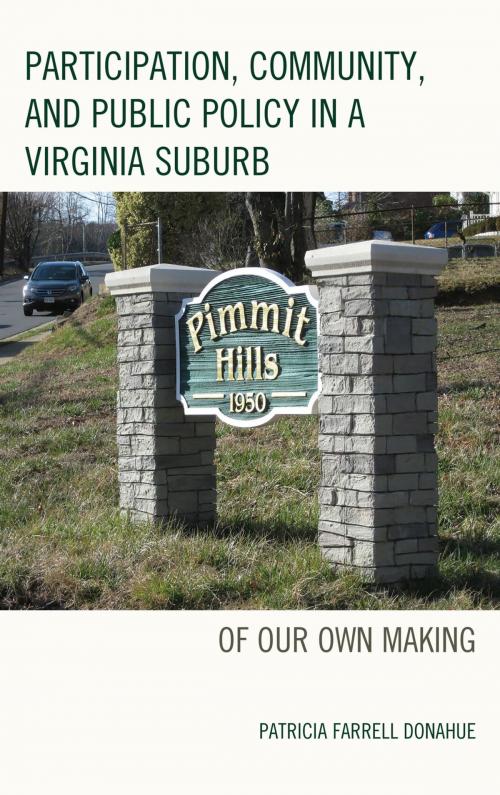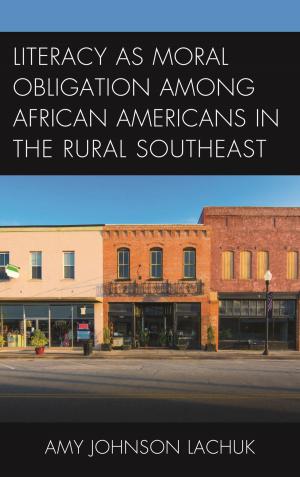Participation, Community, and Public Policy in a Virginia Suburb
Of Our Own Making
Nonfiction, Social & Cultural Studies, Political Science, Politics, City Planning & Urban Development, History, Americas, United States, State & Local, History & Theory| Author: | Patricia Farrell Donahue | ISBN: | 9781498529778 |
| Publisher: | Lexington Books | Publication: | September 25, 2017 |
| Imprint: | Lexington Books | Language: | English |
| Author: | Patricia Farrell Donahue |
| ISBN: | 9781498529778 |
| Publisher: | Lexington Books |
| Publication: | September 25, 2017 |
| Imprint: | Lexington Books |
| Language: | English |
Participation, Community, and Public Policy in a Virginia Suburb: Of Our Own Making challenges the conventional wisdom about participation in modern American communities through the story of Pimmit Hills, Virginia—one of the first federally-financed subdivisions built for World War II veterans. Its story will be familiar to the millions of baby boomers who grew up in middle-class suburbs. This book argues that every community is the sum of all of the different types of participation—positive, negative, formal, informal, direct, and indirect—and not just the few participation activities that social surveys have tracked over the past few decades, such as voting or attending religious services. At the same time, Pimmit Hills’s story is unique. Its proximity to Washington, D.C., meant its residents had front-row seats to—and sometimes supporting roles in—the creation of policies that continue to shape the America we live in today, such as childhood vaccinations, discrimination, and information technology.
Participation, Community, and Public Policy in a Virginia Suburb: Of Our Own Making challenges the conventional wisdom about participation in modern American communities through the story of Pimmit Hills, Virginia—one of the first federally-financed subdivisions built for World War II veterans. Its story will be familiar to the millions of baby boomers who grew up in middle-class suburbs. This book argues that every community is the sum of all of the different types of participation—positive, negative, formal, informal, direct, and indirect—and not just the few participation activities that social surveys have tracked over the past few decades, such as voting or attending religious services. At the same time, Pimmit Hills’s story is unique. Its proximity to Washington, D.C., meant its residents had front-row seats to—and sometimes supporting roles in—the creation of policies that continue to shape the America we live in today, such as childhood vaccinations, discrimination, and information technology.















